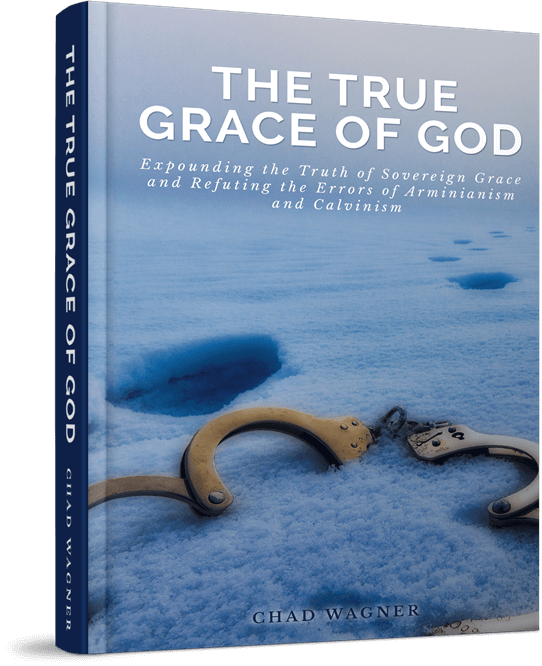“And they come again to Jerusalem: and as he was walking in the temple, there come to him the chief priests, and the scribes, and the elders, 28 And say unto him, By what authority doest thou these things? and who gave thee this authority to do these things? 29 And Jesus answered and said unto them, I will also ask of you one question, and answer me, and I will tell you by what authority I do these things. 30 The baptism of John, was it from heaven, or of men? answer me. 31 And they reasoned with themselves, saying, If we shall say, From heaven; he will say, Why then did ye not believe him? 32 But if we shall say, Of men; they feared the people: for all men counted John, that he was a prophet indeed. 33 And they answered and said unto Jesus, We cannot tell. And Jesus answering saith unto them, Neither do I tell you by what authority I do these things.” (Mar 11:27-33)
The Lord Jesus exhorted His followers to “learn of me” (Mat 11:29), which includes learning to argue effectively and righteously like He did. Jesus often disputed with the Pharisees and the Jewish leadership concerning the doctrine of God (Mar 12:18-27, etc.), leaving us an example of how we “should earnestly contend for the faith which was once delivered unto the saints” (Jud 1:3). Paul, our beloved apostle (Rom 11:13), likewise disputed with both Jews and Gentiles, contending for the faith of the gospel (Act 15:2; Act 17:1-3, 16-18; Act 18:4; Act 19:8). Contrary to the opinions of many professing Christians, arguing and contending for the faith is a godly act which is in keeping with the tradition of Christ and the apostles.
In the passage above (Mar 11:27-33), Jesus used a method of argumentation similar to what is called a double-horned argument to stop the mouths of gainsayers. On page 204 of his book, An Introduction to Philosophy, Paul Glenn described this form of argument thusly: “The Dilemma or horned syllogism offers, in a major disjunctive premise, two alternatives or “horns,” and in two conditional premises it catches an opponent on either one horn or the other, and reaches the same conclusion by either alternative.” In His argument with the chief priests, scribes, and elders, Jesus posited to them a question which was formulated in such a manner to force them to condemn themselves regardless of their answer. Christ’s skill in rhetoric and argumentation was unparalleled among men, so much so that even the officers charged with apprehending Him confessed, “Never man spake like this man.” (Joh 7:46)
Though not in the form of a horned syllogism, Christ’s question produced the same result: self-condemnation by the respondents. His opponents had three options: 1) admit that John’s baptism was from heaven and then be forced to explain why they didn’t believe him; 2) declare that it was of men and then face the wrath of the people who counted John a prophet; or 3) confess that they didn’t know the answer to such a simple question and therefore show themselves to be fools. Through one simple question, Jesus set these wicked men up to condemn themselves, just as does the heretic who “is subverted, and sinneth, being condemned of himself” (Tit 3:11).
Now, let’s take what we have learned from our Lord Jesus Christ and follow His example of contending for the faith using a double-horned argument. Opponents of the doctrine of the true grace of God argue that one must believe the gospel as a condition to acquire eternal life. But, it is a fact that eternal salvation is “not according to our works” (2Ti 1:9) and “not by works of righteousness which we have done” (Tit 3:5). Since belief is something a man does, it is therefore a work (something that is or was done; what a person does or did – OED) by definition, and thus cannot be a condition for the acquisition of eternal life. Nevertheless, opponents of the doctrine of grace will argue that belief is not a work. But what saith the scripture?
Joh 6:28-29 – Then said they unto him, What shall we do, that we might work the works of God? 29 Jesus answered and said unto them, This is the work of God, that ye believe on him whom he hath sent.
In response to the disciples’ question of what they must do to work the works of God, Jesus said plainly that the work of God was to believe on Him. Thus, believing in Jesus is a work, and therefore it cannot be a condition for eternal life. The Arminians just got ran through by the first horn. If, in an attempt to deny that belief is a work, they make the argument that “the work of God” in Joh 6:29 refers to the work that God does, they just impaled themselves on the second horn because they have conceded that our belief in Jesus Christ is an effect of the work which God did in us when He regenerated us, thereby giving us the gift of faith — and not rather an act of a fallen man’s freewill as the following verses teach.
Act 13:48 – And when the Gentiles heard this, they were glad, and glorified the word of the Lord: and as many as were ordained to eternal life believed.
Act 18:27 – And when he was disposed to pass into Achaia, the brethren wrote, exhorting the disciples to receive him: who, when he was come, helped them much which had believed through grace:
Php 1:29 – For unto you it is given in the behalf of Christ, not only to believe on him, but also to suffer for his sake;
2Pe 1:1 – Simon Peter, a servant and an apostle of Jesus Christ, to them that have obtained like precious faith with us through the righteousness of God and our Saviour Jesus Christ:
1Jn 5:4 For whatsoever is born of God overcometh the world: and this is the victory that overcometh the world, even our faith.
Now let’s sum up the argument concisely. If Joh 6:28-29 is teaching that our faith is a work, then our faith cannot be a condition for obtaining eternal life. If John 6:28-29 is teaching that God produces our faith within us through His work of regeneration (the act of creating a new spirit in us), then our faith cannot be a condition for obtaining eternal life because it is an effect of having eternal life. Either interpretation of this passage is a horn which pierces through the heart of Arminianism.









2 Responses
Awesome. I just love logical rhetoric. An argument like this is so logical and leaves absolutely no wiggle-room for critics, it just has a satisfying feel to it. It sort of scratches an itch, if you know what I mean.
I know I don’t usually comment on your stuff, but lately I been quite impressed and intrigued by your material. Thank you, and God bless.
Thanks, Justin. I’m glad you enjoyed it. I appreciate the feedback. May God be with you.